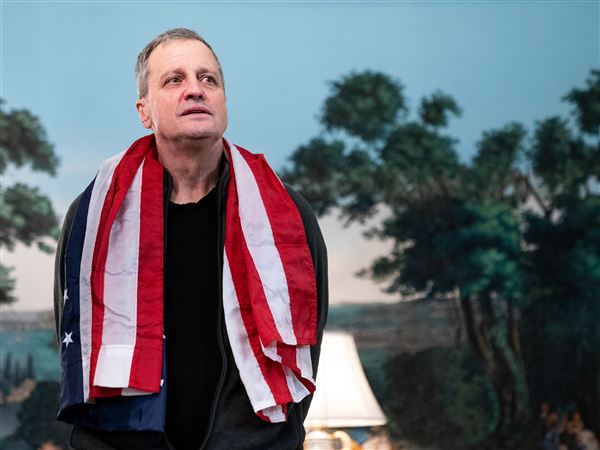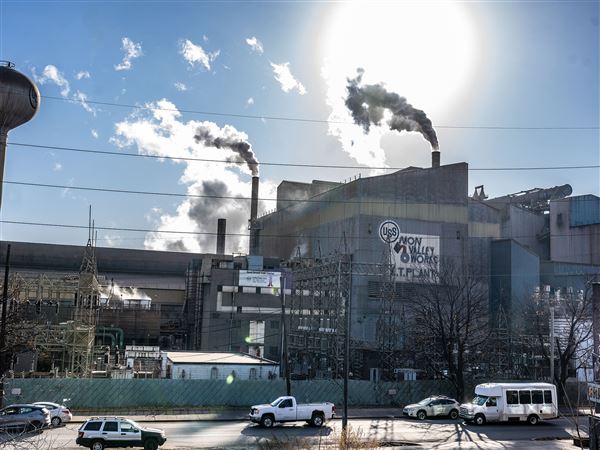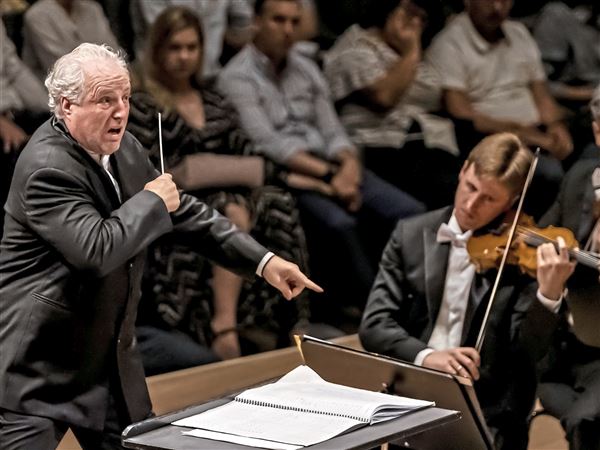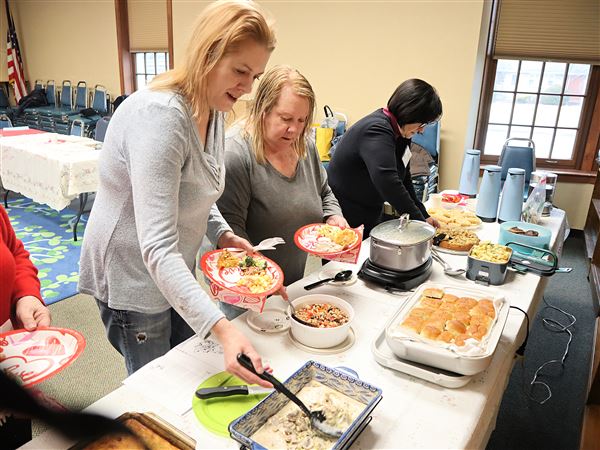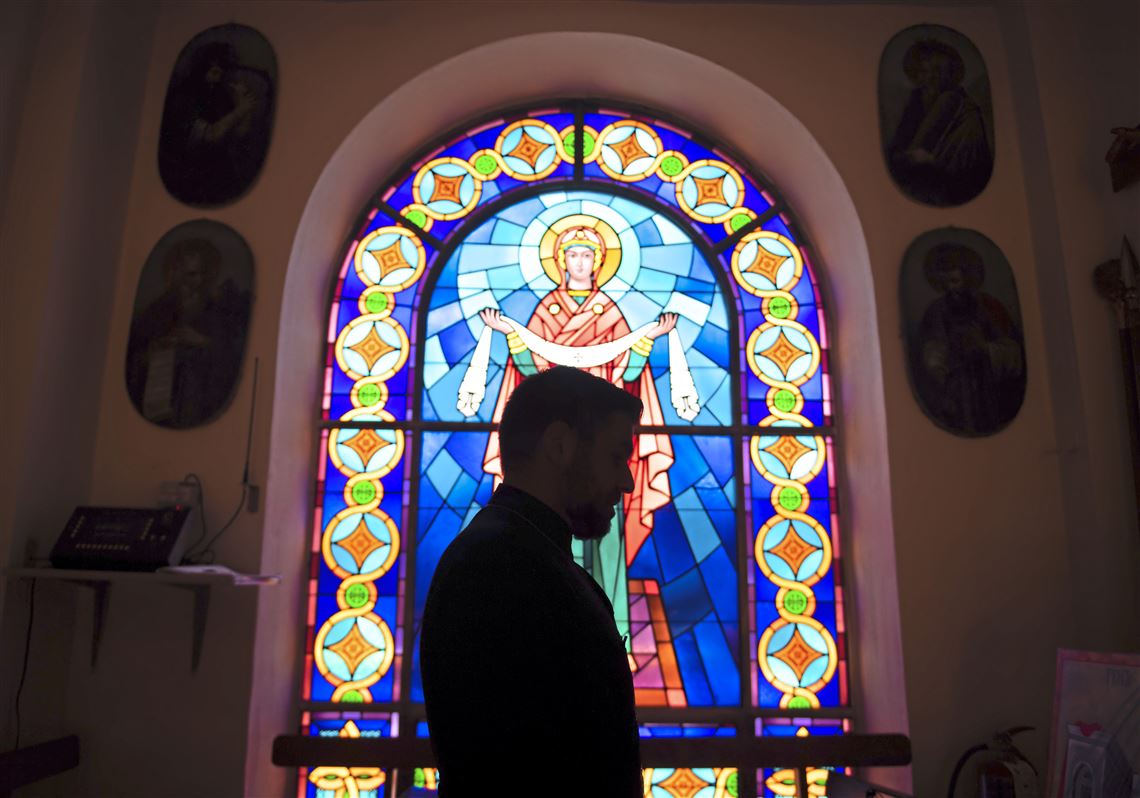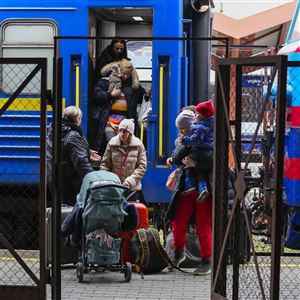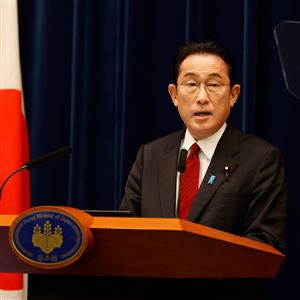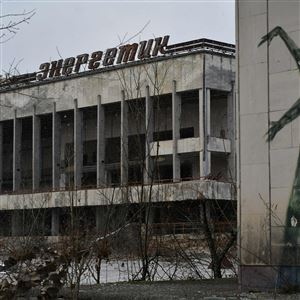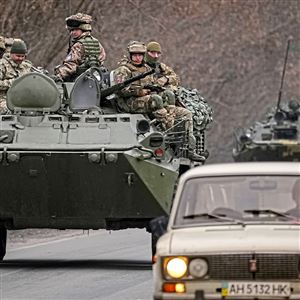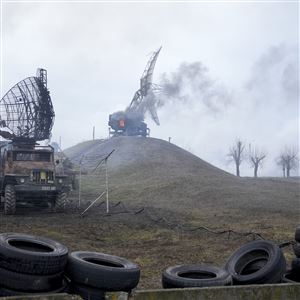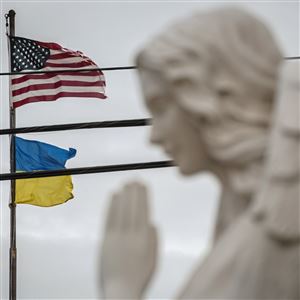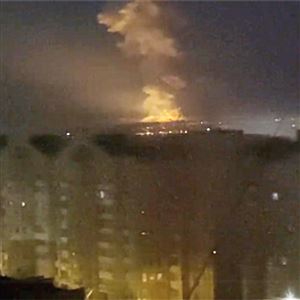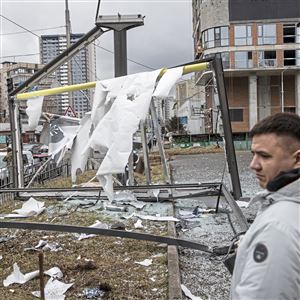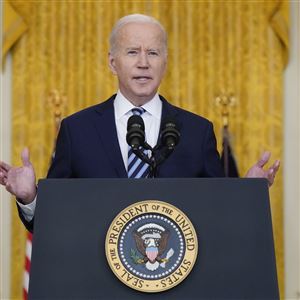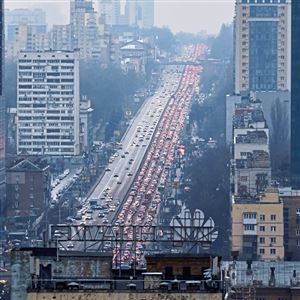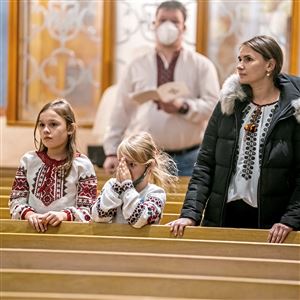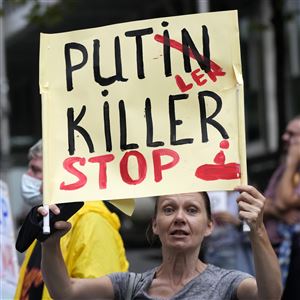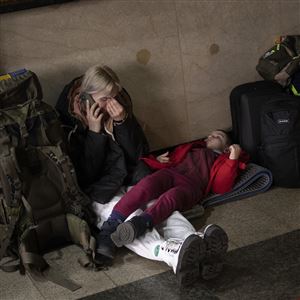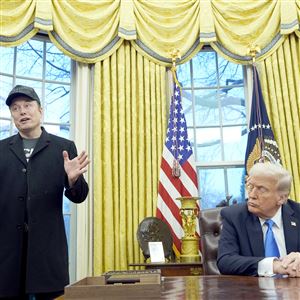In the Nataliya European Food Market in Greenfield, owner Nataliya Petrylo opened a Ukrainian flag on Wednesday with plans to hang it in the store’s front window along Murray Avenue, along with signs urging prayer for Ukraine.
“We are very worried,” said Ms. Petrylo. “We don’t want a war.”
Ms. Petrylo and her husband, Gregoriy, came to Pittsburgh from Ukraine 20 years ago and opened their market in Greenfield four years ago. They serve both a Russian and Ukrainian clientele, selling everything from candy to caviar.
A television at the market Wednesday was tuned to a speech by a Ukrainian politician. Later that day, Russian President Vladimir Putin formally announced a military operation in Ukraine amid reports of explosions in Kyiv, the country’s capital.
Early Thursday, Russian forces attacked, hitting cities and bases with airstrikes or shelling, while civilians piled into trains and cars to flee. The Ukrainian government said at least 40 soldiers had been killed and dozens more wounded.
Pennsylvania Gov. Tom Wolf condemned the attack, calling it an “unprovoked and unjustified Russian military invasion.”
“This attack on a peaceful country is shocking and its impacts will be far reaching,” Mr. Wolf said in a statement. “I urge democratic leaders across the globe to unite and respond decisively to this unjustified and unlawful attack.”
Like many Pittsburghers of Ukrainian ancestry, the Petrylos had watched anxiously over the last few weeks and months as Russia escalated its military build-up along the Ukrainian border. There are about 11,600 people of Ukrainian ancestry in Allegheny County and 21,180 in the broader Pittsburgh region, according to U.S. census data from 2019.
In pockets of Pittsburgh, the Ukrainian community makes its presence known.
Just a couple of blocks down from the Nataliya market on Murray Avenue in Greenfield is another small Ukrainian market called Kyiv.
In Carnegie, there are multiple Ukrainian churches. The Rev. Jason Charron is pastor at one of them, Holy Trinity Ukrainian Catholic Church. Father Charron grew up in Canada but lived in Ukraine for three years. His wife is Ukrainian, and two of their seven children were born there.
They are in touch with family in Ukraine every day, Father Charron said, and while at first the Russian military operations seemed similar to what those in Ukraine have been living with since Russia annexed Crimea in 2014, that has changed in recent weeks.
“It’s obviously becoming increasingly apparent that this is not like the former buildups that have been happening in the past eight years on the border,” he said. “This current aggression from Russia is a difference in kind, not a difference in degree.”
Father Charron’s family is mainly in western Ukraine in the city of Lviv, the same region from which most of his parishioners hail.
“There’s nothing they can really do,” he said of his family there. “The only thing is keep a full tank of gas in your car and head toward Poland or Hungary.”
In January, the Holy Trinity Church held special services to pray for Ukraine in response to a call from Pope Francis. There also will be special prayers for Ukraine on Sunday.
“People need to remember that prayer is like gravity: It’s unseen, but it influences everything around us,” Father Charron said. “Although there may be nations with powerful weapons, each of us has the capacity through prayer to turn men’s hearts to God.”
At the market in Greenfield, the crisis in Ukraine has been a common topic of discussion among customers in recent weeks.
The market serves a mix of Ukrainian and Russian customers, said Ms. Petrylo, and she and her husband switch between the two languages depending on the customer. None of their Russian customers had expressed support for an invasion of Ukraine, Mr. Petrylo said.
“We have many Russian customers who don’t like what Putin is doing,” he said.
The Ukrainian community in Pittsburgh isn’t nearly as large as those in cities such as Philadelphia and Chicago, but it has banded together before in crisis.
Tatiana Rad, of Marshall, helped organize her fellow Pittsburgh Ukrainians in 2014, putting together dozens of packages of items like boots and warm clothes to help support the Ukrainian army during Russia’s invasion of Crimea. At that time, her family also attended multiple rallies held to show support for Ukraine.
“Pittsburgh has a pretty small community, but we were still able to organize a huge amount of different things and events,” she said.
Ms. Rad, an electrical engineer who left Ukraine in the 1990s to come to the United States for work, said Wednesday that she was hoping that this time, Mr. Putin would stop short of full-scale war.
But even before the invasion began, she heard from friends and family who were already feeling the effects.
“It’s hitting every Ukrainian household,” Ms. Rad said, noting that she has some acquaintances who have already left the country. “The economy is dipping down; a lot of businesses are leaving Ukraine. Prices are rising, and people have small pensions — they cannot afford it when prices for food are going to grow. Ukrainians are already suffering.”
She remains faithful, however, that her country will endure.
“Ukrainians, they are a very brave people,” Ms. Rad said. “They are not going to bow to Putin.”
Anya Sostek: asostek@post-gazette.com.
First Published: February 24, 2022, 1:12 p.m.
Updated: February 24, 2022, 2:24 p.m.
